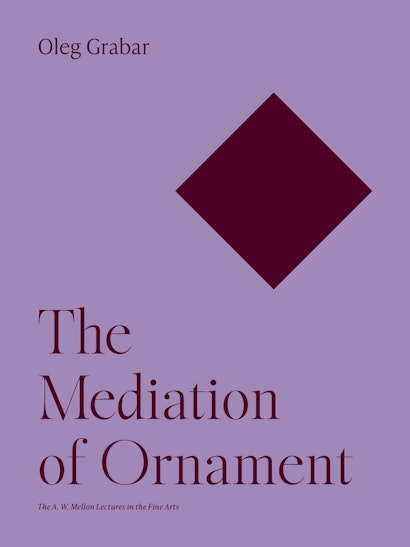Based on universal motifs, ornamentation occurs in many artistic traditions, though it reaches its most expressive, tangible, and unique form in the art of the Islamic world. The Mediation of Ornament shares a veteran art historian’s love for the sheer sensuality of Islamic ornamentation, but also uses this art to show how ornament serves as a consistent intermediary between viewers and artistic works from all cultures and periods. Oleg Grabar analyzes early and medieval Islamic objects, ranging from frontispieces in Yemen to tilework in the Alhambra, and compares them to Western examples, treating all pieces as testimony of the work, life, thought, and emotion experienced in one society. The Mediation of Ornament is essential reading for admirers of Islamic art and anyone interested in the ways of perceiving and understanding the arts more broadly.
Oleg Grabar (1929–2011) was a professor in the School of Historical Studies at the Institute for Advanced Study in Princeton, and was for many years the Aga Khan Professor of Islamic Art at Harvard University. His many books include The Alhambra, The Formation of Islamic Art, and The Great Mosque of Isfahan.
"It is impossible to approach this profoundly stimulating book by Oleg Grabar without reflecting on the strange twists of fate that the discourse of ornament has undergone in the last two centuries. . . . Oleg Grabar takes up anew the challenge of using ornament to broach artistic questions."—Margaret Olin, Art Bulletin
"This is writing that not only rewards but requires rereading. . . . If The Formation of Islamic Art was the most provocative and generously conceived book on its subject in the '70s, The Mediation of Ornament, with its expanded frame of reference and sense of personal urgency, may well assume that status for the '90s."—Holland Cotter, Art in America
"In a real sense the book is a mediation, the Platonic daemon, between ornament and the reader. . . . When language has to be invented or defined to fulfill a specific need, as here, it is a sign that new concepts are being proposed by the author."—Sylvia Auld, Art History
"With perhaps Socratic irony, Grabar maneuvers between ideology and mere decoration by divining in ornament a mediating function in a world troubled by doubt. Grabar believes that ornament constitutes a ‘discourse on love.’ His book, written with a kindly wit, and a keen intelligence, is beautifully illustrated, and itself illustrates the role of ornament in the world."—Bostonia
"Grabar seeks to understand the transmission of meaning from visual form to interpretation: what is it that mediates between the physical object and a viewer's understanding? He postulates that in Islamic art it is writing, geometry and (images of) architecture and nature, which together constitute ornament. . . . An honest statement of one scholar's personal intellectual journey."—Mesa Bulletin
"An admirable treatise . . . it offers its readers an exemplary interplay of art history and aesthetics. One receives a beautifully illustrated introduction to Islamic art, and each work earns its presence by serving to bring a theoretical issue to life. This is cross-fertilization at its very best."—Journal of Aesthetics and Art

